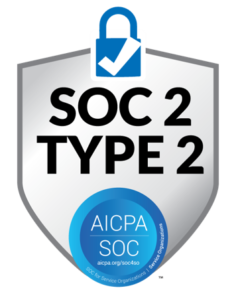If you consider all the current challenges that are impacting your supply chain, rising labor costs and employee turnover are probably some of the most painful. That’s why many high-performing businesses are turning to labor management solutions to help retain talent and increase worker productivity.
But having labor management software by itself isn’t enough. Choosing a partner that provides all the key components of a comprehensive labor management program (LMP) is essential to achieving real value and long-term success.
The Importance of Selecting the Right Vendor
There is much more to an effective LMP than just software. No labor management software will deliver its full value without the right processes and strategy around it. That’s why it’s critical to choose a vendor that not only offers a robust LMS but provides the services and support needed to establish and maintain an effective LMP.
This type of partner can help develop a holistic labor management strategy and implement a more complete solution for an organization to achieve its goals and make effective labor management part of the company culture. They’re also more vested in a customer’s long-term success. A vendor simply selling software won’t have the same level of interest in seeing the company realize labor cost savings, improved retention, or any other metrics as one that is involved at every stage – from software purchase and implementation to ongoing maintenance and support.
Choosing the Right Labor Management System Partner
Here are essential elements to look for when selecting a labor management vendor.
1. Robust Labor Management System Software
A holistic labor management program requires a robust tier-1 labor management system (LMS). These state-of-the-art systems provide the tools managers need to better plan and adjust their resources, increase employee performance through observation and coaching, and analyze operational performance through real-time business intelligence (BI) reporting. These solutions can calculate multi-determinant standards for more accurate goal setting and then collect real-time operational data to monitor performance and identify any gaps or issues. The LMS should also be able to integrate with any WMS and other systems to provide greater visibility, data aggregation, and a more seamless solution.
2. Program Strategy Support
Just having tools in place won’t deliver the desired result without a comprehensive plan for how to use them. To be truly effective, labor management software needs to be part of a holistic LMP. Select a partner with deep industry knowledge that can help you map out an entire labor management strategy and then implement a solution that’s right for your organization. This helps create a more cohesive program with seamless handoffs throughout each phase of the project and provides guidance every step of the way. A vendor with a strong partner network can support a company’s long-term automation strategy by allowing them to integrate their labor management software directly into other solutions.
3. Strong Engineering Capabilities
An effective LMP establishes best practices and standard operating procedures (SOPs). Your labor management partner should be able to support process improvement efforts through lean analysis, creating SOPs, and establishing performance standards. Engineered labor standards provide an accurate means for setting clear and fair expectations and support ongoing performance monitoring. Multi-determinant engineered labor standards, including XYZ travel, result in significantly higher levels of performance compared to one-determinant historical standards. Select a partner that can help set up dynamic labor standards for your specific work environment and supports long-term standards maintenance to ensure those standards are updated as your organization and processes change.
4. Inclusive Labor Management System Training
To get the most out of your LMS you need to know how to use it effectively and have it fit into a broader labor management strategy. Look for a vendor that will not only train you in how to use the software but how to establish a successful LMP. This includes sharing best practices for each component of an LMP, such as how to create engineered performance standards, how to have difficult conversations with associates, and how to optimize performance.
5. Sound Change Management Processes
Change can be difficult, so having good change management processes is key to both successful implementation and the long-term success of an LMP. Studies by change management consultancy Prosci found that 93% of respondents with excellent change management met or exceeded objectives and were six times more likely to succeed than those without such support. A labor management vendor with strong change management capabilities can help you set goals, monitor performance and adjust processes along the way. They can also help clearly communicate what the program entails, why the change is needed, how it impacts personnel, and what’s expected of them. This will go a long way in helping ease any concerns and ensure employees buy into the program.
6. Post-Project Support
Maintaining an effective LMP requires support long after implementation of software. Select an experienced vendor with deep industry knowledge and an understanding of what it takes to maintain a successful program. Vendors with an established customer service team can provide regular communication with operations teams and executives to ensure they’re getting the best value out of the system and staying on top of any issues or needed improvements, as well as provide guidance on the long-term strategy of the program.
Need help taking your operation to the next level? Schedule a complimentary audit of your current labor management program.
Author: Jason Morrisey, Account Manager, Customer Success Team
Related TZA Resources:


